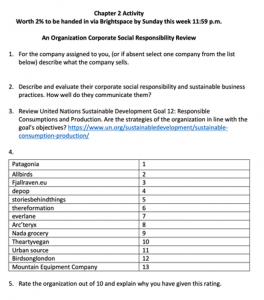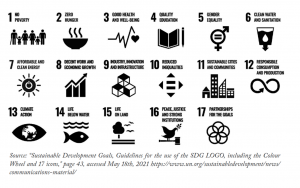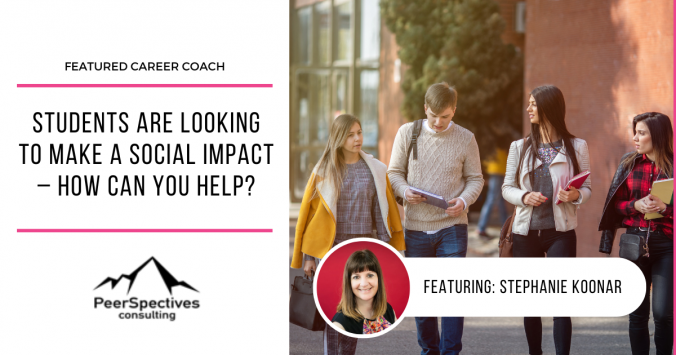After teaching over 4,000 students, I have learned this. Students have changed.
It is much more common for students to state that they want to work for an organization that aligns with their values. According to a Deloitte report, Gen Z (those born since 2000) looks beyond a company’s products and seeks to understand an organization’s ethics, practices and social impact. Research suggests that Gen Z is determined to make a difference and make an impact.
What Instructors Can Do
Many of us teaching in higher education are excited about encouraging students to identify where they might direct their talents to make an impact in a way that is meaningful to them.
As instructors, we can build into our courses, assignments and projects opportunities for this exploration. For example, I have a marketing assignment that asks students to review and evaluate the corporate sustainability commitments and practices outlined on company websites. Students are often amazed at the good things that companies such as Patagonia are working such as responsible production and consumption of their products (GOAL 12 of the UNSDG’s). But sometimes, the information on their practices is hard to find on an organization’s website, or students have pointed out that some claims are not backed up with research or data.

As a follow-up, I have a marketing group project assignment where I ask marketing students to imagine they are launching their own company. Students are to develop a marketing strategy for a new product and service that they design. As future leaders, they are asked to consider how a product or service might address a challenge that they wish to solve and to consider how they might build corporate social responsibility and sustainability strategies into the product design.
I have been delighted to see product concepts that include elements that support the responsible production and consumption of their product. The products might be made with vegan leather, are biodegradable, are recyclable or have been designed to have a light impact on the environment and leave nothing but footprints. Students thoughtfully include details on the ingredients, the manufacturing process and the fair treatment of their employees and suppliers.
Participating in these types of projects helps students to identify what impacts are important to them and informs them as they seek out organizations to work for when they graduate. It has been demonstrated that work is fulfilling when it contributes to the greater good, giving meaning and purpose.
A Meaningful Career Journey
My book, “Backpack to Briefcase, A Student’s Guide to a Meaningful Career Journey”, was written for young people to help them navigate the student-to-work transition. The book is divided into three Phases: Discover, Build and Launch. In the Discover Phase, readers are given activities to uncover what they love, what they are good at, what they can be paid for, and to identify what issues the world needs solving that they might bring their talents to.

I ask readers to consider the challenges that we are facing in the world today and to list the ones they wish to address the most. This can inform students of possible places they might apply their talents. One way to help students generate ideas about world issues is to have them review the United Nations Sustainable Development Goals (SDGs). There are 17 SDGs that were set to be achieved by 2030. By providing students with brief descriptions of the goals, they can better understand the challenges and identify which ones resonate with them. You can find out more at www.un.org/sustainabledevelopment.
What Employers Can Do
I remind my students that you do not have to solve these challenges on their own, as there are many organizations that are already tackling these issues. Students are hungry for information on what organizations are doing to solve challenges that are meaningful to them. These are the organizations where students wish to bring their talents. So it is key that employers clearly share their goals, initiatives and results on corporate websites and social media channels so potential employees are aware of the organizations’ ethics, practices and social impacts.
Grads wish to make an impact in the world, and they seek to bring their talents to organizations that are also working to solve the same challenges.
Sounds like a win-win to me!
Biography: Stephanie Koonar is a marketing professional, academic, career coach, and workshop facilitator. A community connector, she is an award-winning college instructor who has taught over 4,000 students. A Gallup-Certified Strengths Coach and Co-Founder of PeerSpectives Consulting, she enjoys coaching purpose-driven individuals and organizations to be their best. Stephanie and her PeerSpectives Consulting Co-Founder, Louann McCurdy, are available to partner with Employers and Educators to collaborate on program development, guest speakers, and facilitate workshops. Contact Stephanie at sk.PeerSpectives@gmail.com. Interested in getting your own copy of the Backpack to Briefcase book? You can purchase it here.
Explore more articles on our Incubator and visit TalentEgg.ca to get started on your job search!




